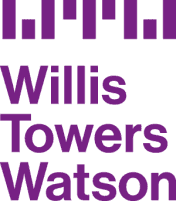Pinsent Masons has revealed a soaring 14% increase in turnover from £531.1m to £605.9m, with the rate of revenue growth more than doubling since this time last year.
PEP is also up by 8% to £797,000 which, in contrast to the increase in revenue, is directly half the rate of growth of 16% last year.
Meanwhile, the firm’s new law offering, Vario, has fared extremely well over the past year, with a rapid 38% rise in its overall revenue.
In conversation with Legal Business, recently installed managing partner Laura Cameron (pictured) gave context for the significant acceleration in the firm’s revenue: ‘This has been a record year for us. There is no doubt that the macro-economic environment we are working in remains challenging, but these results are a product of the relentless pursuit of our strategy and a return on the investments we have made over the last few years on cross-border mandates, transactional and contentious work.’
She added: ‘Our strategy to connect people, sectors and geography is also paying off. We have grown in a number of our European markets, including the Netherlands, Luxembourg and Spain.’
Asked why the rise in revenue is not matched by the same increase in PEP, Cameron responded: ‘PEP growth is slower than last year, but considering the economic headwinds I am really pleased with the increase this year. We have increased our partner numbers, but only by 2%, which is not significant enough to impact the PEP number that much. Costs have, however, increased across the board – for all law firms.’
Cameron highlighted the firms highest-performing practice areas: ‘The contentious part of the business has been really strong. Our global sectors generate about 84% of our overall revenue and we have seen an increase in revenue in our global financial services practice by 22%, as well as 13% in infrastructure, 17% in energy, and 11% in real estate.’
She elaborated: ‘Energy has been the up-and-coming sector for us, which works very nicely with infrastructure. As our clients seek to transition in the energy space, they need expertise in both infrastructure and energy.
‘We are very strong in the UK and do a lot of work regarding renewables, but we are also continuing to develop outside of the UK. In Madrid, there is a huge market for energy and infrastructure. Our growth across Asia has been driven by infrastructure and energy too. Our South African practice was also opened on the back of infrastructure.’
Cameron, who took over the role of managing partner from John Cleland on 1 May, outlined her ambitions and strategy for the firm: ‘We want to remain relevant to clients. That means ensuring that we continue to bring together our different sectors, skillsets and geographical markets. We are our best when we bring those together and service our clients’ needs. Joining up our offices throughout our networks is key for me, as well as focusing on developing the connectivity across the business.’
Questioned whether she has a harder task ahead of her than Cleland had, Cameron asserted: ‘The results I am sharing with you today are his work, not mine. I don’t have a harder job, because since they took on their roles a few years ago, we have nearly doubled our revenue and opened ten new offices across our network. I need to maintain that momentum and continue that trajectory.’








